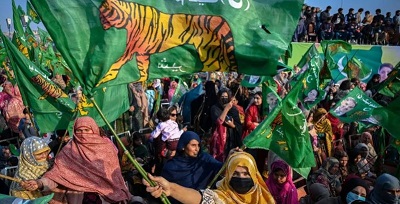Islamabad, (Asian independent) Pakistan’s two major political parties, Pakistan Muslim League-Nawaz (PML-N) and Pakistan People’s Party (PPP), agreed to form a coalition government in Centre, leaders of the two parties said.
“Both the parties have agreed on a power-sharing formula as we have the required number of seats in the National Assembly (NA) to form the government,” PML-N President and former Prime Minister Shehbaz Sharif said on Tuesday evening during a joint press conference in Islamabad.
Following days of negotiations between the two parties, it has been decided that Sharif will be the joint candidate for both parties for the slot of Prime Minister and PPP Co-Chairman Asif Ali Zardari will be the joint candidate for the President’s slot, Xinhua news agency reported.
Sharif said that the independent candidates, who emerged victorious in majority by securing m ore than 100 seats, were invited to form the government, but they failed to achieve the required numbers.
He added that other parties such as the Muttahida Qaumi Movement-Pakistan, the Pakistan Muslim League, and the Istehkam-e-Pakistan Party supported PML-N and PPP in the government-making endeavour.
Acknowledging that the road ahead for the coalition government will be challenging, Sharif said that the coalition alliance is prepared to confront and overcome the obstacles together.
The upcoming government will work together to pull the country out of the ongoing crises, he said, expressing the hope to be able to deliver.
Speaking on the occasion, PPP Chairman Bilawal Bhutto Zardari said the details of the sharing of key constitutional offices between the PPP and PML-N will be announced in the coming days.
Expressing hopes for success in addressing Pakistan’s challenges, the PPP Chairman said that the news of the political alliance of the PPP with the PML-N to form a coalition government will lead to a positive response from the markets and bring stability.
Earlier, the Election Commission of Pakistan announced the result of 265 out of 266 seats for the NA after the country held general elections on February 8 to elect a government for the next five-year term, with no political party securing a simple majority, compelling parties to make alliances to form the government in Centre.








